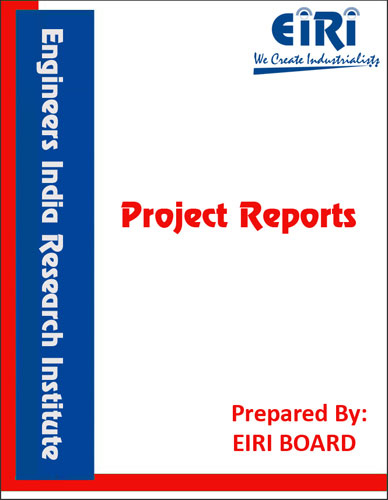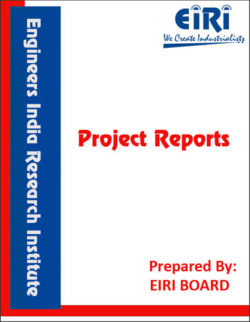SOLAR MODULES
The project report includes Present Market Position and Expected Future Demand, Market Size, Statistics, Trends, SWOT Analysis and Forecasts. Report provides a comprehensive analysis from industry covering detailed reporting and evaluates the position of the industry by providing insights to the SWOT analysis of the industry.
We can prepare PROJECT REPORT as per your INVESTMENT PLAN for BANK LOAN REQUIREMENT and INDUSTRY ANALYSIS. All reports are prepared by highly qualified consultants and verified by a panel of experts.
Have Query? Click Here to Chat
Industry Expert is Online, Chat with him for more detail.

SOLAR MODULES
[CODE NO. 0602]
As the name, itself suggests solar cell is made from two words, solar & cell. Cell means the device to provide the direct current power supply & Solar means the device operated by the energy received from sun. The Solar Cell is the device which, converts the light energy into the electric energy. Solar panels find their application in residential, commercial, industrial and power utilities. The growth of solar panel market is expected to be considerable in residential end-se application, owing to the support by governments’ funding and initiatives.
Viewing the increasing cost of fuel & coal, pollution produced by the thermal power station operated by either coal or fuel, initial capital investment for nuclear power plant & the difficulties regarding the disposal of nuclear waste, all these power generating sources are very inconvenient & trouble some for near future.
On the basis of size, the solar panel market can be categorized into small (<100 kW), medium (1–10 MW), and large (>10 MW). Based on solar module, the solar panel is bifurcated into monocrystalline technology multicrystalline technology, and thin-film. One more point which diverts our attention from the thermal power plants, using coal, fuel & atomic energy as energy sauces, is its limitation on the earth. As it is calculated that, if the consumption of the above mentioned materials continue with same rate as it is being used now a days, these materials would not cost long. Coal can be used for around 200 years oil fuel around 60 years & nuclear energy sources about 150 years. But as we know the demand of electricity is increasing day by day all the materials ie. coal oil & uranium etc. It is possible that these may not be available after just hundred years for the production of electrical energy so we are to turn our attention toward another energy sources like air, sun & other new types of energy sources. The market penetration is high in Europe, owing to the decentralized energy generation model in the region. The increased government funding and initiatives in countries, such as Germany and the U.K., have intensified the growth of solar power capacity in the region, which in turn is, fueling the demand for solar panels.
Each ‘EIRI’ MARKET OVERVIEW CUM DETAILED TECHNO ECONOMIC FEASIBILITY REPORT (Complete Report) tentatively covers
• Introduction
• Properties
• BIS (Bureau of Indian Standard) Specifications & Requirements
• Uses & Applications
• Present Indian Market Overview/Position
• Export & Import Statistics Data
• Names and Addresses of Existing Units (Present Manufactures)
• List of Plant & Machineries
• Miscellaneous Items and Accessories
• Instruments, Laboratory Equipments and Accessories
• Electrification, Electric Load and Water
• Maintenance, Suppliers/Manufacturers of Plant and Machineries
• Manufacturing Process with Formulations (If applicable)
• Flow Sheet Diagram
• List of Raw Materials
• Availability of Raw Materials
• Requirement of Staff & Labour
• Personnel Management
• Skilled & Unskilled Labour
• Requirement of Land Area
• Built up Area
• Plant Layout
Along with financial details as under:
• Summary of Capital Cost of Project
• Land & Side Development Exp.
• Buildings
• Plant & Machineries
• Misc. Fixed Assets
• Technical Know how Fees & Exp.
• Preliminary Expenses
• Pre-operative Expenses
• Provision for Contingencies
Below mentioned financial statements (Annexure) will be for 5 to 10 Years
• Annexure:: Cost of Project and Means of Finance
• Annexure:: Output, Profitability and Cash Flow Chart
• Annexure:: Assessment of Working Capital requirements
• Annexure:: Sources of Finance
• Annexure:: Balance Sheets
• Annexure:: Break-Even Analysis and profitability analysis.
• Annexure:: Quantitative Details-Output/Sales/Stocks
• Annexure:: Sales Realisation
• Annexure:: Raw Material Cost
• Annexure:: Other Raw Material Cost
• Annexure:: Packing Material Cost
• Annexure:: Consumables, Store etc.,
• Annexure:: Employees Expenses
• Annexure:: Fuel Expenses
• Annexure:: Power/Electricity Expenses
• Annexure:: Repairs & Maintenance Exp.
• Annexure:: Other Mfg. Expenses
• Annexure:: Administration Expenses
• Annexure:: Selling Expenses
• Annexure:: Depreciation Charges – Profitability
• Annexure:: Depreciation Charges
• Annexure:: Interest and Repayment – Term Loans
• Annexure:: Tax on Profit
• Annexure:: Assumptions for Profitability workings
• Annexure:: Assessment of Working Capital



